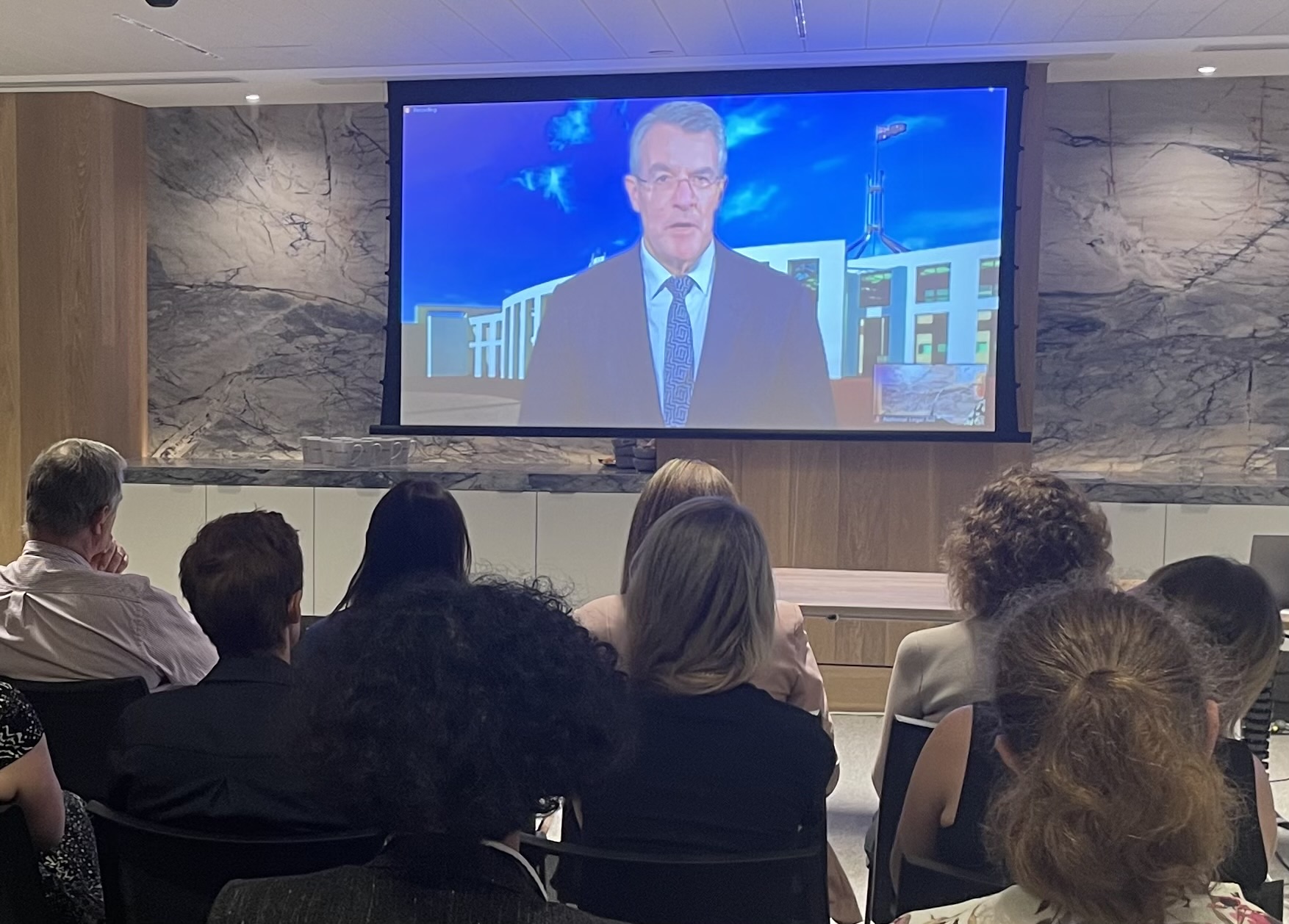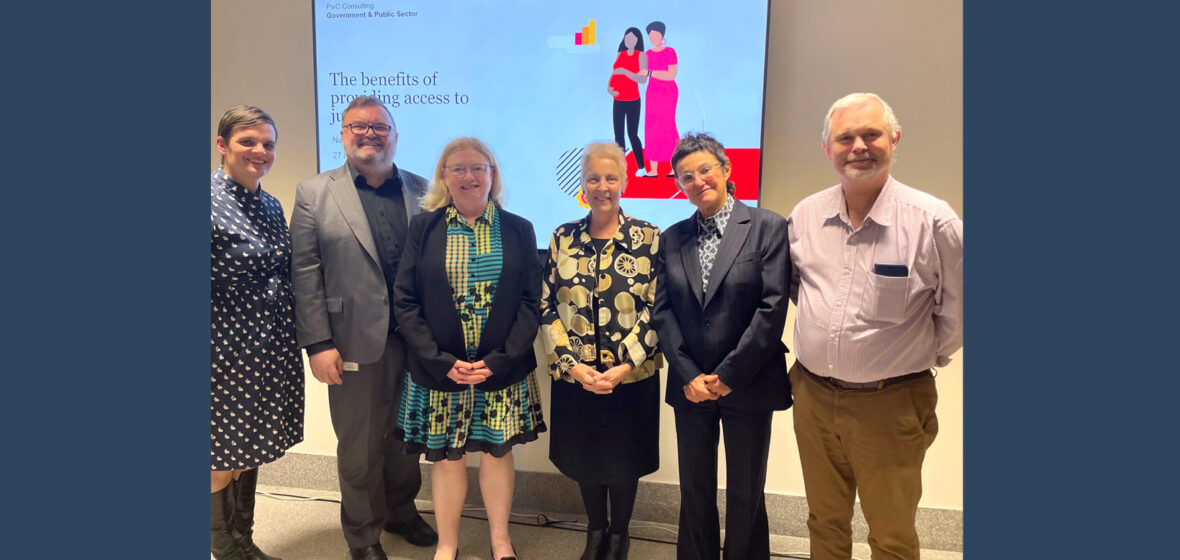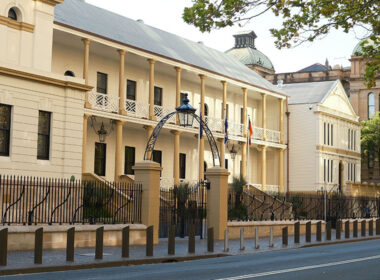Family law matters account for 96 per cent of all Commonwealth funded matters for Legal Aid Commissions in Australia, a ground-breaking new report looking at the value of legal assistance has found.
The report from Price Waterhouse Coopers (PWC), commissioned by National Legal Aid (NLA) and released on Monday 27 March, estimates the economic benefit delivered by Legal Aid services that are funded by the Australian Government.
The Benefits of Providing Access to Justice was launched to a hybrid audience both in person at Legal Aid NSW in Sydney and online, with a mix of practitioners from community legal centres, private firms, and Government representatives tuning in.
Nationally, Legal Aid Commissions receive $267 million annually from the Commonwealth to deliver family and civil law services. The report – titled The Benefits of Providing Access to Justice – found for every dollar invested, an equivalent benefit of $2.25 was delivered, equating to $600 million in savings to the community, government, and the justice system.
Louise Glanville, Chair of National Legal Aid and CEO of Victoria Legal Aid, said more than half these savings ($378 million) were in supporting women and children escaping domestic and family violence.
“86 per cent of all Legal Aid family law matters include a risk of family violence, and we’re committed to being part of the effort to eliminate family violence in the community,” Glanville said.
“This report demonstrates just how important legal assistance is to supporting the wellbeing of victim-survivors and assisting the government in avoiding the ongoing costs of family violence.”
Legal Aid commissions are the main providers of legal assistance services in Australia and are responsible for nearly all the legal assistance representation services at courts and tribunals.
National Legal Aid (NLA), as the representative body for each of the state and territory legal aid commissions, sought to establish the evidence of the value of its participation in Australia’s legal landscape.

NLA first commissioned PWC in 2009, and the report was the first of its kind in the world. It was subsequently reviewed by the Productivity Commission and picked up by the World Bank, as a methodology of doing cost benefits analysis.
In 2021-22 the commissions collectively delivered more than 1.5 million services from their 78 offices across Australia. They also provided 23,000 grants of aid in family law matters.
Glanville said due to limited resources and a 14 per cent increase in family law demand since 2014, LACs have had to restrict their means tests to maximise service delivery.
“If funded more appropriately, we could deliver much more legal assistance to those experiencing disadvantage, particularly victim-survivors of family violence,” Glanville said.
“This new report amply demonstrates the significant benefit Legal Aid Commissions provide to the community. Yet we could do so much more with additional investment.
“The PwC Report demonstrates how valuable Legal Aid assistance is. We look forward to ongoing discussions with the Federal Government as to how this assistance can be maximised.”
Law Council of Australia President Luke Murphy welcomed the report as a body of work which will assist in building an “evidence base for the challenges we all know exist”.
“The civil and family law services provided by Legal Aid Commissions are a bulwark against further hardship and marginalisation. Unfortunately, these services have remained undervalued and underfunded by consecutive governments,” Murphy said.
In its submission to Federal Treasury ahead of the May Budget, the Law Council noted that current Commonwealth funding levels under the National Legal Assistance Partnership (NLAP), including for Legal Aid Commissions, are at approximately half of the level required to meet demand on the sector.
“In considering the Federal Budget and the imminent review of the NLAP, the Law Council calls on the Australian Government to heed the advice of this report and properly recognise and invest in the family and civil law services provided by our Legal Aid Commissions, in addition to improved funding for the entire legal assistance sector,” Murphy said.
“All arms of this sector including Legal Aid Commissions, Community Legal Centres, Aboriginal and Torres Strait Islander Legal Services and Family Violence Prevention Legal Services have a vital role in delivering access to justice across the Australian community.”




